 JUST BRIDGED: There’s a new bridge over Georgia Highway 316 at Walther Boulevard. This new bridge links the east side of the city with an easy route to Georgia Gwinnett College. While the setting of the concrete bridge was finished last week, traffic will not be open on the route until early spring, says the Georgia DOT. Roving Photographer Frank Sharp made this photo with his Canon Powershot SX-50 at 1/500th of a second. The fast lens setting stopped the traffic clearly.
JUST BRIDGED: There’s a new bridge over Georgia Highway 316 at Walther Boulevard. This new bridge links the east side of the city with an easy route to Georgia Gwinnett College. While the setting of the concrete bridge was finished last week, traffic will not be open on the route until early spring, says the Georgia DOT. Roving Photographer Frank Sharp made this photo with his Canon Powershot SX-50 at 1/500th of a second. The fast lens setting stopped the traffic clearly.
IN THIS EDITION
TODAY’S FOCUS: Remembering Old Times and Baptist Sword Drill
EEB PERSPECTIVE: Gun Rampage Legislation Can Start at the Local Level
ANOTHER VIEW: Gwinnett Was Once Haven for Dumping of Atlanta Bodies
FEEDBACK: More on Brokered Convention, TV Antennas and Americans Being Fearful
UPCOMING: Duluth Seeking Members of Citizen’s Budget Review Commission
NOTABLE: First Student at PCOM Gets Award Fund
RECOMMENDED READ: Gamble by Felix Francis
GEORGIA TIDBIT: First American College Sorority, Alpha Delta Pi, Founded at Wesleyan
TODAY’S QUOTE: Why You Should Not Tell People Your Problems
MYSTERY PHOTO: Several Recognize Lodge at National Park
TODAY’S FOCUSBaptist Sword Drill imprints Bible verses on children’s minds
By Vally Sharpe
(Editor’s Note: The author is a native of Crisp County and a former resident of Gwinnett.)-eeb
ASHEVILLE, N.C., Dec. 8, 2015 — I recently ran across a news clipping of me in 1971. It was a listing of the regional winners of what was called the “Bible Drill” by then, a competition held in the Southern Baptist Church for younger kids. Older youth in the church participated in a speaker’s tournament. When I first began to participate, the competition had been known as the “Sword” Drill, a name I still prefer, although the “Bible” Drill is, admittedly, a more descriptive term. Successfully competing in the Sword Drill meant one had to know the books of the Bible and the order in which they appear, from Genesis to Revelations.
The whole “sword” reference came from the fact that the “word of God” is sometimes called the “sword of the spirit.” But it didn’t stop there. The commands “Attention!” and “Draw swords!” and scripture references like “Joshua 4:14” or “Philemon 1:16” would be called out and the sound of pages rustling would commence. Within seconds, someone would step forward, and when acknowledged, would read the verse or passage aloud.
At specified breaks along the way, instead of finding a passage as fast as we could, we were required to step forward and recite it from memory. Before each competition, we were sent the list of verses and the passages we would have to memorize so we could practice, and as I recall, it wasn’t easy. We never knew which verses would be called out or which passages we would be required to recite, so we had to practice finding and learn all of them.
Before a competition, each child was given an official Sword Drill Bible, a hard-backed King James Version not unlike the Gideon Bibles one can still find in hotel nightstand drawers. The Bibles were black, designed to fit in a 9-year-old’s hands—and brand new to make sure that the spines weren’t pre-cracked at just the right places, if you know what I mean.
 An actual drill went something like this. At “Attention!” we stood straight-backed with our Bibles clasped in one hand by our sides. At “Draw swords!” we brought our arms straight out in front of us, Bibles still closed, but now held between our palms, with one hand flat on top. Our fingers were pressed close together, including the thumbs—no creeping over to the side for an unfair advantage was tolerated.
An actual drill went something like this. At “Attention!” we stood straight-backed with our Bibles clasped in one hand by our sides. At “Draw swords!” we brought our arms straight out in front of us, Bibles still closed, but now held between our palms, with one hand flat on top. Our fingers were pressed close together, including the thumbs—no creeping over to the side for an unfair advantage was tolerated.
I would go on that year to become the Georgia State Champion and represent my home church and association at an exhibition held on a stage at Ridgecrest, the Baptist Retreat Center in North Carolina. I remember thinking the trip was a long way away. In a touch of synchronicity, perhaps, I live fewer than 10 miles from there today.
Years would pass and I would leave the Southern Baptist Church, but I look back on those days with gratefulness, and I always will. Forty-four years later, I can still recite the books of the Bible in order…and my favorite Bible passage—Romans 8:37-39:
“Nay, in all these things we are more than conquerors through him that loved us. For I am persuaded, that neither death, nor life, nor angels, nor principalities, nor powers, nor things present, nor things to come, Nor height, nor depth, nor any other creature, shall be able to separate us from the love of God, which is in Christ Jesus our Lord.”
This was the very first passage I learned.
King James Version, please.
EEB PERSPECTIVEGun rampage legislation can start at the local level
By Elliott Brack, editor and publisher
DEC. 8, 2015 | Researchers know that getting to the root of a problem is the best way to solve it.
Jonas Salk recognized his vaccine immunizing youth would solve polio. It was a scourge in the days before 1955 when parents were fearful of allowing their children in public swimming pools. Now polio is approaching eradication world-wide.
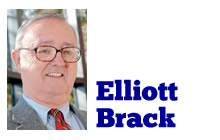 What’s the root of our many rampages of killing people? The proliferation of guns, and not pistols and simple hunting rifles: no, it’s multiple-round automatic weapons that cause much of our American problem of mass killings.
What’s the root of our many rampages of killing people? The proliferation of guns, and not pistols and simple hunting rifles: no, it’s multiple-round automatic weapons that cause much of our American problem of mass killings.
Now to the core of this problem: The National Rifle Association. Their hard-line stance of adamant resistance to any change in the gun laws in America is short-sighted and harmful to our nation. It at least contributes to the continual shootings that breaks out somewhere in our country almost every day.
Close to home, right here in Georgia, 25 people are dead, and 69 wounded, in mass shootings in our state in 2015. Five people died in a family violence case in Troup County in January; five more were killed in Douglasville in February, and July I in Forsyth County, four more people were killed.
While we accept the recognition of the right for Americans to own guns, we need to stop the distribution of automatic weapons on a routine basis. We defend the right of any citizen of this country to have a weapon to protect a family, but vigorously question why such citizen need to arm himself with what amounts to weapons of mass destruction.
 Many Americans can recite the locale of mass shootings: San Bernandino, the most recent; Colorado Springs; Chattanooga; Charleston; Washington, D.C.; Newtown, Conn. and the list goes on. Sadly, we are beginning to recognize that any community in the nation could be the site of the next rampage. Internationally, Paris is only the latest.
Many Americans can recite the locale of mass shootings: San Bernandino, the most recent; Colorado Springs; Chattanooga; Charleston; Washington, D.C.; Newtown, Conn. and the list goes on. Sadly, we are beginning to recognize that any community in the nation could be the site of the next rampage. Internationally, Paris is only the latest.
Any sitting president must feel frustrated with his hands tied as Congress fails to pass legislation to quell such incidences.
The gun problem is so acute in this country that last week it caused The New York Times to have a front-page editorial concerning gun violence. It was the first time since 1920 that the newspaper has published a front page editorial. (Click here to read the editorial.)
What can individual American do about this continuing problem?
Well, there’s an election coming in 2016. The big one is the presidential election, and so far no presidential candidate has produced a suggestion to solve this problem.
Yet it needs not be solved only at the national level. There are also elections for the state legislatures coming in 2016, as well as city elections. You as a citizen should be asking every prospective candidate you see,” What will you do to curb gun violence in America?”
Put the questions to every single candidate you seek. While we may not get national legislation on this matter, individual states and cities could pass new rules to limit the sale of guns in their individual jurisdiction. Sure, it would be challenged by the NRA, but someone’s gotta take them on. A rampage could happen here.
Tell your legislators you want action on gun violence. Remind them that the action can start at home. That gets to the root of the problem, solving it at the local level.
ANOTHER VIEWGwinnett was once haven for dumping bodies from Atlanta
By Debbie Houston
DEC. 8, 2015 | When I was young, Gwinnett County’s claim to fame was a morbid one — murderers in Atlanta would hide the evidence by dumping the remains in county woods. Because Gwinnett was rural, there were plenty of places to hide a body.
![]() From the 50s through the early 60’\s, homicide was uncommon in Gwinnett. If only one murder occurred during a particular year, we’d become uneasy. We’d temporarily lock our doors until the fear dissipated.
From the 50s through the early 60’\s, homicide was uncommon in Gwinnett. If only one murder occurred during a particular year, we’d become uneasy. We’d temporarily lock our doors until the fear dissipated.
Today’s Gwinnett is urban. There may be a few rural patches left, but for the most part, we’ve gone from living on farms or keeping shop, to becoming a high-tech area with good jobs, and even welcoming movie studios to film here.
Perhaps the county’s claim to fame today is our multi-cultural population. People from all over the world come here to pursue their dreams. Unfortunately, with any growth comes crime. Many of us dead bolt our doors and windows 24 hours a day because homicide has become routine in Gwinnett.
Though I wonder if we’ve become desensitized by so many crime reports. I try to push them out of my mind, and at the same time, stay aware of safety measures. Most crimes seem drug related. We have a large Hispanic population in Gwinnett, who came here to work or one day become an American citizen. Unfortunately, drug cartels have cleverly infiltrated and mixed in with those Hispanics who harbor no malicious intent.
I don’t know the answer to crime, but I can always theorize: We citizens get what we tolerate. If we tolerate drug cartels, they’ll never leave. More importantly, if some of us continue to buy illicit drugs, the cartels will continue to flourish.
One difference between 1955 Gwinnett and 2015 Gwinnett may be that bodies are still being dumped here, but those who commit murder are living right under our nose today.
IN THE SPOTLIGHTGeorgia Gwinnett College
 The public spiritedness of our sponsors allows us to bring GwinnettForum.com to you at no cost to readers. Georgia Gwinnett College is a four-year, accredited liberal arts college that provides access to targeted baccalaureate level degrees that meet the economic development needs of the growing and diverse population of Gwinnett County and the northeast Atlanta metropolitan region. GGC opened its doors in August 2006 as the nation’s first four-year public college founded in the 21st century, and the first four-year public college founded in Georgia in more than 100 years. Georgia Gwinnett produces contributing citizens and future leaders for Georgia and the nation. Its graduates are inspired to contribute to their local, state, national and international communities and are prepared to anticipate and respond effectively to an uncertain and changing world. GGC currently serves almost 11,000 students.
The public spiritedness of our sponsors allows us to bring GwinnettForum.com to you at no cost to readers. Georgia Gwinnett College is a four-year, accredited liberal arts college that provides access to targeted baccalaureate level degrees that meet the economic development needs of the growing and diverse population of Gwinnett County and the northeast Atlanta metropolitan region. GGC opened its doors in August 2006 as the nation’s first four-year public college founded in the 21st century, and the first four-year public college founded in Georgia in more than 100 years. Georgia Gwinnett produces contributing citizens and future leaders for Georgia and the nation. Its graduates are inspired to contribute to their local, state, national and international communities and are prepared to anticipate and respond effectively to an uncertain and changing world. GGC currently serves almost 11,000 students.
- Visit Georgia Gwinnett College’s web site at www.ggc.edu.
- For a list of other sponsors of this forum, go to: Our sponsors.
Gets good over-the-air reception of TV with antenna in attic
Editor, the Forum:
I went through the same DIY experimenting on TV antennas as you did for the exact same reason two years ago. I was finally successful in mounting an over-the-air (OTA) antenna that got clear signal reception for all the locally available stations in Atlanta. I have a couple of tips.
 The most important factor is mounting your interior antenna as high as possible in your house, preferably in the attic. My antenna has a preamplifier to boost the signal over the longer distance. I connected a separate preamplifier (that requires a 120 VAC electrical source) where the co-ax came out downstairs. Then I connected a signal splitter to send the signals to three television locations via coax.
The most important factor is mounting your interior antenna as high as possible in your house, preferably in the attic. My antenna has a preamplifier to boost the signal over the longer distance. I connected a separate preamplifier (that requires a 120 VAC electrical source) where the co-ax came out downstairs. Then I connected a signal splitter to send the signals to three television locations via coax.
On the web, go to antennaweb.org, put in your zip code for your house in order to find the compass bearings to point your antenna. You will find that the transmitter antenna for channel 8 GPB is on the top of Stone Mountain, so that is the direction to orient your antenna for max signal strength. Also some of the other television stations have their antennas in the same general direction.
What was the result? Well, I have great OTA reception for local channels but I still have cable. After cutting off my cable service I found I could not live without ESPN and other sports channels that are available only on cable. So I still have cable too.
— Al Swint, Atlanta
U.S. Senate not doing job to keep FCC, cable signals in their place
Editor, the Forum:
I have a HD antenna facing Atlanta in my attic. It runs down to my basement where it’s amplified and distributed throughout the house. As I recall, I get 11 HD channels including GPB, and about 40 misc standard definition channels.
You will have to thank your senators for not doing their job to oversee the FCC and keep Cable/Satellite in their places. Consumers have long demanded a la carte programming, but the cable companies want to keep the tier model which maximizes their income, and distributors want to force the cable companies to buy their channels in bundles as well.
The thing that upsets me about the Senate’s failure to oversee these vultures is that it allows the cable monopoly to tell new channels like Al Jazeera that if they want to be carried on cable and satellite, that they have to accept certain editorial restraints, and that they can no longer provide their service to non-cable customers through the internet. Also, cable companies simply exercise too much editorial control by blocking international news channels like Al Jazeera, PressTV, or Russia TV.
— Joe Briggs, Buford
Americans are becoming fearful people; What happened?
Editor, the Forum:
It seems to me that Americans have turned into a fearful people. Parents hover over their children for fear that something terrible will happen. We are fearful ‘illegals’ are stealing into our country. Americans own almost half of the world’s privately owned guns because we ‘need’ to protect ourselves.
We are fearful of radical Islamists. We are afraid of liberals taking away our guns. We are even afraid of our own federal government taking away our liberty. And I thought Americans were a tough, optimistic, can-do people. What happened?
— Alan Schneiberg, Ph.D., Sugar Hill
- SEND FEEDBACK AND LETTERS: elliott@brack.net
City of Duluth seeking members of Citizens’ Review Committee
The City of Duluth just completed a strategic conference where the 10-year operating budget forecast was reviewed in preparation for the FY2017 budget process. City officials believe communication with and guidance from the citizens of Duluth is instrumental in having a healthy community.
 Part of this guidance has come from the Citizens’ Budget Review Advisory Committee. Previous committees reflected a great cross section of the citizenry and provided helpful feedback and recommendations on ways the city can be more efficient and effective in its daily operations. The city is set to begin its fifth collaboration with the Citizens’ Budget Review Advisory Committee on Feb.23, 2016 for the FY2017 budget.
Part of this guidance has come from the Citizens’ Budget Review Advisory Committee. Previous committees reflected a great cross section of the citizenry and provided helpful feedback and recommendations on ways the city can be more efficient and effective in its daily operations. The city is set to begin its fifth collaboration with the Citizens’ Budget Review Advisory Committee on Feb.23, 2016 for the FY2017 budget.
The first meeting establishes an overview of the city’s budget process and what the Budget Committee’s role will be in the process. Budget Committee participants will be given the city’s current operating budget (FY2016) and ten year forecast presentation. They are asked to study the material and be ready to discuss them at the next meeting.
The second (March 15) meeting involves review of draft figures for the preliminary FY2017 operating budget and provides time for questions and clarification of any items presented thus far.
The third (March 29) meeting is geared toward recommendations from the Citizens’ committee, addressing any concerns with the budget and finally discussion of visionary opportunities for the city.
Officials and staff look forward to working with the citizens again this year. For additional information or if a citizen would like to be a part of this committee, they should contact, Kim Jackson at kjackson@duluthga.net or 770-497-5321.
NOTABLEDuluth Municipal Court accepting canned donations for part of fines
The City of Duluth Municipal Court is accepting canned food donations for partial payment of fines this month.
 Any person with a payment due between the dates of December 4 through December 21 of 2015 will receive a $25 credit towards the fine upon donation of 10 cans of non-perishable canned goods. The most anyone can get credit for is 10 cans per citation which is a maximum of $25.00 per fine.
Any person with a payment due between the dates of December 4 through December 21 of 2015 will receive a $25 credit towards the fine upon donation of 10 cans of non-perishable canned goods. The most anyone can get credit for is 10 cans per citation which is a maximum of $25.00 per fine.
Lori Edelkind, administrative assistant, says that “The idea came from one of our local residents, Elaine Slonina, and we just thought it was a great idea to implement this year for the holiday season.”
Anyone who does not bring canned goods on their scheduled court date will be able to leave and bring back the items by 4 p.m. the same day of their arraignment. The cans must be a standard size. Industrial sized cans of food or foods that have a glass container are not accepted. Cans must be taken to the Duluth Municipal Court, at The Duluth Public Safety Building., 3276 Buford Highway, Duluth. The telephone there is (770) 623.2771.
The donation of the cans only goes towards the fines, not towards late fees, license suspensions, or warrant fees. This type of credit cannot be used for payment of fines for probation.
Suggested items include but are not limited to: cans of vegetables, tomato sauce, beans, tomatoes, fruits, proteins, peppers, corn, mixed vegetables, peanut butter, jelly, and soups of all kinds. We will not accept expired (out of date) canned goods, damaged or open canned goods. The food will be donated to the Duluth Co-Op, located on Fox Street, who will in turn distribute them to the needy.
PCOM student gets First Fund Award; wants to return to Alma, Ga.
This past October, Hannah Southerland, who is a first-year pharmacy student at the Philadelphia College of Osteopathic Medicine (PCOM) School of Pharmacy, became the first student to receive the GA-PCOM Student Award Fund. The award is granted to students who plan to practice medicine in underserved communities upon graduation.
Southerland aspires to return to her hometown of Alma, Ga., to serve as a pharmacist. Originally from Savannah, Tenn., Southerland moved to Alma, when she was in fifth grade. “Alma is the definition of a small town,” she says, “It is a very tight-knit community where everyone supports one another. Everybody knows everybody and most adults will know your parents, your grandparents and your great grandparents.”
It’s these interpersonal relationships that inspire Southerland to eventually return home for her pharmacy career. “I love the idea of knowing every patient that I come in contact with,” she explains, “I also believe that having a personal relationship with your patient allows the patient to develop trust in you and your opinions. That trust can allow you to really make a difference in someone’s life… I have a very big sense of pride for my hometown and I want nothing more than to contribute to the community in any way that I can.”
Still, Southerland wasn’t always so sure where the future would take her. As she neared the end of high school, Southerland recalled not knowing what she wanted to pursue as a career. She had a vast interest in science and math, so her mother encouraged her to consider pharmacy. After getting a job in a local retail pharmacy, Southerland “fell in love with the profession” and the feeling that she was helping people in some small way.
Southerland graduated with a bachelor’s degree in chemistry from Georgia Southern University in Statesboro and worked in retail pharmacy for five years before joining the PCOM School of Pharmacy in Suwanee, Ga. Growing up in a “three red light” town, Southerland describes her move to Atlanta to attend pharmacy school as “a culture shock… in Alma people take their time. It isn’t as fast-paced as Atlanta.”
Down the line, Southerland hopes to become manager of a pharmacy in Alma after a few years of working – “I would like to own my own pharmacy one day, but not for a while,” she said, “I just want to develop relationships with my patients and help them stay healthy.”
RECOMMENDEDGamble
A novel by Felix Francis
 The novels of the Dick Francis series were always entertaining, centering around the ex-jockey’s love of horses and steeplechase races. Unfortunately, the author died in 2010, but the series continues with his younger son, Felix, now the author. This book, the first from the son tied to horseracing, is from 2011, beautifully continues in the Francis’ tradition, combining a modern day stockbroker efforts with a clever Bulgarian scam undetected going on in his firm by a greedy nobleman. The plot thickens until at least the protagonist, an ex-jockey, has to eventually mount a steed to extricate himself from those on the chase to murder him. It’s an entertaining ride. Felix Francis is the author of four horseracing books, continuing in his father’s vocation of writing, but was previously for 17 years a professor of advanced level physics in England. — eeb
The novels of the Dick Francis series were always entertaining, centering around the ex-jockey’s love of horses and steeplechase races. Unfortunately, the author died in 2010, but the series continues with his younger son, Felix, now the author. This book, the first from the son tied to horseracing, is from 2011, beautifully continues in the Francis’ tradition, combining a modern day stockbroker efforts with a clever Bulgarian scam undetected going on in his firm by a greedy nobleman. The plot thickens until at least the protagonist, an ex-jockey, has to eventually mount a steed to extricate himself from those on the chase to murder him. It’s an entertaining ride. Felix Francis is the author of four horseracing books, continuing in his father’s vocation of writing, but was previously for 17 years a professor of advanced level physics in England. — eeb
An invitation: what books, restaurants, movies or web sites have you enjoyed recently? Send us your recent selection, along with a short paragraph (100 words) as to why you liked this, plus what you plan to visit or read next. –eeb
GEORGIA ENCYCLOPEDIA TIDBITFirst American college sorority, Alpha Delta Pi, founded at Wesleyan
(Continued from previous edition)
From the beginning in Macon, Wesleyan Female College’s administrators planned to provide an education that equaled those offered at men’s colleges. Unlike other women’s institutions that taught high school–level course work and did not grant degrees, the Georgia Female College provided instruction in philosophy, history, and ancient and modern languages, among other subjects. Upon completing the course of instruction, a student received the “First Degree,” the equivalent of a bachelor’s degree.
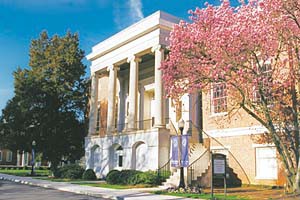 The school emphasized training in mathematics and the natural sciences, an offering unique in women’s education at the time. A great deal of enthusiasm accompanied the college’s opening in January 1839. By the end of the term, 168 students had enrolled, an impressive number at a time when many state-sponsored colleges in the South often had fewer than 200 students. The school graduated its first class in July 1840, which included students previously enrolled at Thomas Bog Slade’s Clinton Female Seminary in Jones County.
The school emphasized training in mathematics and the natural sciences, an offering unique in women’s education at the time. A great deal of enthusiasm accompanied the college’s opening in January 1839. By the end of the term, 168 students had enrolled, an impressive number at a time when many state-sponsored colleges in the South often had fewer than 200 students. The school graduated its first class in July 1840, which included students previously enrolled at Thomas Bog Slade’s Clinton Female Seminary in Jones County.
Besides being the first degree-granting women’s college, Wesleyan also witnessed several other “firsts.” In 1851 six students founded the Adelphean Society. Later renamed Alpha Delta Pi, the group has the distinction of being the mother of the modern sorority system. Wesleyan also organized the world’s first alumnae association in 1859 and established the first Phi Kappa Phi chapter at a Georgia liberal arts college in 1969. Women from Wesleyan include the first in Georgia to receive a Doctor of Medicine degree and the first to argue a case before the Supreme Court of Georgia.
In 1843 the Methodist Church assumed direct responsibility for the school, leading to its being renamed Wesleyan Female College in honor of John Wesley, the founder of Methodism.
Wesleyan remained in constant operation throughout the Civil War (1861-65), and by the end of the nineteenth century enrollment stood at approximately 250 students.
During the first decades of the 20th century, Wesleyan underwent a sustained period of growth and change. In 1917 “Female” was dropped from the name, and the school has been known ever since as Wesleyan College. Two years later the school received accreditation from the organization now known as the Southern Association of Colleges and Schools, an endorsement that Wesleyan still holds. In 1928 the College of Liberal Arts moved its location from the original structure near downtown Macon to its current campus in nearby suburban Rivoli. The School of Fine Arts followed in 1953. The master architecture and landscape plan of 1928 remain intact, resulting in the entire campus being named a National Register Historic District in 2004.
(To be continued)
- To access the Georgia Encyclopedia online, go to http://www.georgiaencyclopedia.org
Are there only two clues for this Mystery?
 The clues are, as you can see, it’s a bridge, and it’s across what appears to be a river. Can you locate where this is? Send your answers to elliott@brack.net and be sure to include the town where you live.
The clues are, as you can see, it’s a bridge, and it’s across what appears to be a river. Can you locate where this is? Send your answers to elliott@brack.net and be sure to include the town where you live.
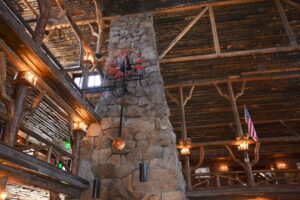 The photo from the last edition, sent to us by Beverly Lougher of Lawrenceville, was a relatively easy one. Doug Rouner of Lawrenceville was first in: “The logs gave it away! It’s the clock located in the Old Faithful Inn in Yellowstone National Park.” Then came Jimmy Simpson of Lilburn: “The Old Faithful Inn inside Yellowstone National Park. A most beautiful place full of history since being built in 1904. Put it on your list to visit.”
The photo from the last edition, sent to us by Beverly Lougher of Lawrenceville, was a relatively easy one. Doug Rouner of Lawrenceville was first in: “The logs gave it away! It’s the clock located in the Old Faithful Inn in Yellowstone National Park.” Then came Jimmy Simpson of Lilburn: “The Old Faithful Inn inside Yellowstone National Park. A most beautiful place full of history since being built in 1904. Put it on your list to visit.”
Other recognizing this beautiful place included Bo O’Kelley, Peachtree Corners; Karen Garner, Dacula; and Bob Foreman, Grayson.
CREDITSGwinnettForum is provided to you at no charge every Tuesday and Friday. If you would like to serve as an underwriter, click here to learn more.
- Send your thoughts, 55-word short stories, pet peeves or comments on any issue to Gwinnett Forum for future publication.
- MORE: Contact Editor and Publisher Elliott Brack at: elliott@gwinnettforum.com


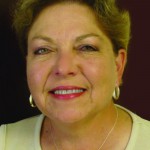
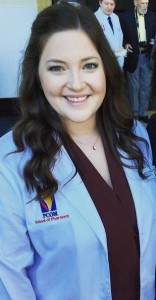







Follow Us